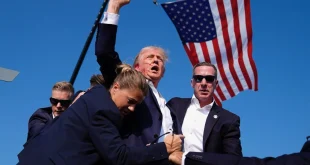Herland Report: Hyper Globalism is over: The post-1990s era of hyper-globalization is now commonly acknowledged to have come to an end.
The COVID-19 pandemic and Russia’s war against Ukraine have relegated global markets to a secondary and at best supporting role behind national objectives – in particular, public health and national security.
But all the talk about deglobalization should not blind us to the possibility that the current crisis may in fact produce a better globalization.
In truth, hyper-globalization had been in retreat since the global financial crisis of 2007-08, writes Dani Rodrik at Project Syndicate, Professor of International Political Economy at Harvard University’s John F. Kennedy School of Government, is President of the International Economic Association and the author of Straight Talk on Trade: Ideas for a Sane World Economy.

Hyper Globalism is over: The share of trade in world GDP began to decline after 2007, as China’s export-to-GDP ratio plummeted by a remarkable 16 percentage points.
Global value chains stopped spreading. International capital flows never recovered to their pre-2007 heights. And populist politicians openly hostile to globalization became much more influential in the advanced economies.
Hyper-globalization crumbled under its many contradictions. First, there was a tension between the gains from specialization and the gains from productive diversification.
RELATED ARTICLES:
- Globalism Transferred US Economy To China, will China rule us?
- WND features New Left Tyranny: Socialism, globalism and ‘robbery capitalism’ hand in hand
- China: The much needed enemy
- Forget politicians: The super-rich control everything now
The principle of comparative advantage held that countries should specialize in what they were currently good at producing. But a long line of developmental thinking suggested that governments should instead push national economies to produce what richer countries did.
The result was the conflict between the interventionist policies of the most successful economies, notably China, and the “liberal” principles enshrined in the world trading system.
Second, hyper-globalization exacerbated distributional problems in many economies. The inevitable flip side of the gains from trade was the redistribution of income from its losers to its winners.
And as globalization deepened, redistribution from losers to winners grew ever larger relative to the net gains. Economists and technocrats who pooh-poohed the central logic of their discipline ended up undermining public confidence in it.
Third, hyper-globalization undermined the accountability of public officials to their electorates. Calls to rewrite globalization’s rules were met with the retort that globalization was immutable and irresistible – “the economic equivalent of a force of nature, like wind or water,” as US President Bill Clinton put it. To those who questioned the prevailing system, UK Prime Minister Tony Blair responded that, “You might as well debate whether autumn should follow summer.”
Fourth, the zero-sum logic of national security and geopolitical competition was antithetical to the positive-sum logic of international economic cooperation. With China’s rise as a geopolitical rival to the United States, and Russia’s invasion of Ukraine, strategic competition has reasserted itself over economics.
With hyper-globalization having collapsed, scenarios for the world economy run the gamut. The worst outcome, recalling the 1930s, would be withdrawal by countries (or groups of countries) into autarky.
A less bad, but still ugly, possibility is that the supremacy of geopolitics means that trade wars and economic sanctions become a permanent feature of international trade and finance.
The first scenario seems unlikely – the world economy is more interdependent than ever, and the economic costs would be huge – but we certainly cannot rule out the second. Read the full article here.
The level of censorship in social media and search engines is all-time high. Do like thousands of others, subscribe to The Herland Report newsletter here!
Led by Scandinavian bestselling author, Hanne Nabintu Herland, The Herland Report news and opinion website provides independent analysis from leading Western intellectuals and ground breaking YouTube interviews, cutting through the mainstream media rhetoric. It is a great place to watch interviews and read the articles of leading intellectuals, thought leaders, authors and activists from across the political spectrum. The Herland Report believes in freedom of speech and its editorial policy resides above the traditional Left vs Right paradigm which we believe has lost its relevance and ability to describe the current driving forces in Western politics.








